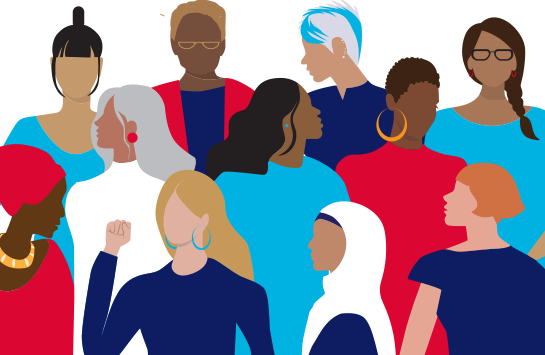Women’s History Month: Reflecting on Teaching & Learning
ED TECH SPOTLIGHT
quote
The Women Also Know movement seeks to tackle the erasure of women in Political Science, Law, and History by providing searchable databases for instructors as they choose books and articles for their syllabi or are searching for experts in the field to cite.
text

Women’s History Month is a time to celebrate the achievements of women internationally. Each March we reflect upon how women have advanced in various societal institutions and contemplate what barriers to advancement remain. In keeping with this year’s International Women’s Day theme #EmbraceEquity, we invite you to consider how women are represented in your course curriculum and integrated within your discipline as you revise your syllabi and structure your classroom experiences.
Despite contributing to the foundational knowledge of their disciplines, women scholars and their intellectual labor continue to be excluded from regular classroom instruction. Resources exist, however, to help all instructors reconsider ways to include women in the curriculum. The Women Also Know movement seeks to tackle the erasure of women in Political Science, Law, and History by providing searchable databases for instructors as they choose books and articles for their syllabi or are searching for experts in the field to cite. @blacknbluebook on Twitter seeks to uplift the work of critical librarians, clinical law faculty, legal writing faculty, and all law faculty outside of elite law schools to make them visible as experts in the field. More broadly, Cite a Sista and The Cite Black Women Collective provide resources to highlight Black women scholars as knowledge producers in the academy and beyond, to integrate them into syllabi and curricula, and to restore them as foundational to disciplinary knowledge. These efforts are integral to richer teaching and learning experiences and to fuller curricular development.
As you take steps to include women into your teaching and curriculum during this year’s Women’s History Month and beyond, we urge you to measure where you are with the Gender Balance Assessment Tool (GBAT). You can read more about the GBAT in the article The Gender Balance Assessment Tool: A Web-Based Tool for Estimating Gender Balance in Syllabi and Bibliographies. This online resource aids instructors in evaluating their syllabi and other texts that contain citations for gender balance. It is less accurate in predicting race and non-binary identities, but when used in tandem with the tools above, the GBAT can advance your syllabi and curricula toward gender and race equity.
Women are not ancillary to disciplinary knowledge, but central to it. Silence and inaction as responses to their erasure are not options. Rather, as the poet Audre Lorde teaches us in Sister Outsider, “ . . . the transformation of silence into language and action is an act of self-revelation.”[1] With each act of transformation we #EmbraceEquity for ourselves and our students.
[1] Audre Lorde, Sister Outsider: Essays and Speeches 42 (Crossing Press, 1984).